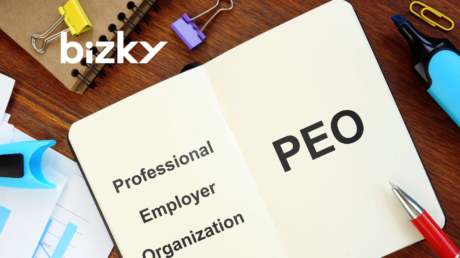Germany
The minimum wage in Germany stands at 12 EUR per hour or 24,960 EUR per year as of July 2023.
1.Market overview
2.Entering the marke
3.Costs to the employer
4.Pay and taxes
5.Payroll timeline
6.Leave Policies
7.Termination Policy and severance
8.Time off during the year
9.Onboarding of employees
Market Overview:
| Currency | Corporate Tax | VAT | Workforce Size |
|---|---|---|---|
| Euro | 29.8% | 19% | 44.5 million |
| Cost | Amount |
|---|---|
| Pension scheme / fund | 9.3% |
| Health insurance | 7.3% |
| Unemployment insurance | 1.3% |
| Nursing care insurance | 1.525% |
| Acident insurance | 0.96% |
Pay and taxes:
Minimum wage: The minimum wage in Germany stands at 12 EUR per hour or 24,960 EUR per year as of July 2023.
Working hours: The workweek is 5 days long with 8 working hours per day as a standard. Moreover, the maximum working hours for an employee are 48 hours weekly.
Overtime Pay: Employees are not legally entitled to any compensation for overtime hours. An employee may work up to 60 hours per week (6-day-long workweek) and can be compensated at the discretion of the employer.
Bonuses: Employees in Ireland are not legally entitled to receive bonuses. However, employers have the discretion to provide bonuses as incentives or rewards. Bonuses are generally considered taxable income and are subject to the prevailing income tax rates in Germany.
Payroll timeline:
| Schedule | Date |
|---|---|
| Payroll Cycle | Monthly |
| Payroll Cut off date | 20th of the month |
| Invoice issuance date | 26th of the month |
| Payment date | Last date of the month |
Entering the market:
Legal Structure: Foreign companies can choose from various legal structures when registering in Germany, including setting up a limited liability company (GmbH), a branch office, or a representative office. Each structure has different requirements and implications, so it’s important to select the most suitable one.
Company Registration: Registering a company in Germany involves several steps, such as choosing a unique company name, providing details of directors and shareholders, and submitting the necessary documentation to the relevant authorities. The process can be completed through the local trade office (Gewerbeamt) or the commercial register (Handelsregister).
Business Activities: Certain business activities may require additional licenses or permits, depending on the industry. It’s essential to ensure compliance with all relevant regulations and obtain any necessary approvals before commencing operations.
Taxation: Foreign companies operating in Germany are subject to German taxation laws. Understanding the tax implications and fulfilling tax obligations is crucial. Seeking advice from tax professionals or accountants can help ensure compliance and optimize tax arrangements.
Employment and Visas: If the foreign company plans to hire employees in Germany, they must comply with German employment laws and immigration rules. Work permits and visas may be required for foreign employees, depending on their nationality and the type of work they will be undertaking.
Language and Documentation: All business documents and contracts must be in German, so it’s important to have a good understanding of the language or hire a professional translator for legal documents.
Bank Account: Opening a business bank account in Germany is essential for conducting financial transactions and managing company finances. It’s advisable to research various banking options and choose a bank that meets the company’s needs.
Local Representation: Some foreign companies choose to appoint a local representative or agent to handle certain administrative matters, especially if they do not have a physical presence in Germany.
Intellectual Property Rights: Protecting intellectual property rights is crucial in any business venture. Companies should consider registering trademarks, patents, or copyrights in Germany to safeguard their intellectual assets.
Compliance and Reporting: Once registered, the company must comply with ongoing reporting and compliance requirements, such as filing annual financial statements and tax returns, to ensure the company’s legal status remains valid.
Costs to the employer:
As a percentage of the employee’s salary
| Cost | Amount |
|---|---|
| Pension scheme / fund | 9.3% |
| Health insurance | 7.3% |
| Unemployment insurance | 1.3% |
| Nursing care insurance | 1.525% |
| Acident insurance | 0.96% |
Pay and taxes:
Minimum wage: The minimum wage in Germany stands at 12 EUR per hour or 24,960 EUR per year as of July 2023.
Working hours: The workweek is 5 days long with 8 working hours per day as a standard. Moreover, the maximum working hours for an employee are 48 hours weekly.
Overtime Pay: Employees are not legally entitled to any compensation for overtime hours. An employee may work up to 60 hours per week (6-day-long workweek) and can be compensated at the discretion of the employer.
Bonuses: Employees in Ireland are not legally entitled to receive bonuses. However, employers have the discretion to provide bonuses as incentives or rewards. Bonuses are generally considered taxable income and are subject to the prevailing income tax rates in Germany.
Payroll timeline:
| Schedule | Date |
|---|---|
| Payroll Cycle | Monthly |
| Payroll Cut off date | 20th of the month |
| Invoice issuance date | 26th of the month |
| Payment date | Last date of the month |
Employees are to be paid by the last day of the month
Income tax: Individual income tax is progressive in Germany as per the table below:
| Annual Income | German tax rate (%) |
|---|---|
| Up to €10,347 | 0% |
| €10,348–61,971 | 14% |
| €61,972–277,825 | 42% |
| €277,826 and above | 45% |
Leave Policies:
| Type of Leave | Policy |
|---|---|
| Maternity Leave | A pregnant employee is entitled to 14 weeks of paid maternity leave, which can extend to 18 weeks for complicated or multiple births. Maternity leave includes a minimum of 6 weeks before the due date (prenatal) and the remaining eight weeks after childbirth (postnatal). The public health insurance fund pays the maternity benefit, equivalent to the average net wages for three months before pregnancy, with a maximum of 210 EUR per day. If the daily net wage exceeds 13 EUR, the employer must provide a grant to cover the difference. |
| Paternity Leave | Paternity leave falls under parental leave regulations. |
| Shared Parental Leave | New parents are entitled to unpaid parental leave (Elternzeit) and should submit a written request at least seven weeks before the start date. The leave duration is 36 months, including 8 weeks of postnatal leave, and can be shared between parents. A minimum of 12 months must be taken within the child’s first three years, with the rest available between the child’s second and seventh birthday, subject to employer approval. Additionally, parents can opt for part-time work, up to 30 hours per week, during parental leave with employer consent. |
| Sick Leave | Eligible employees are entitled to 100% sick pay for up to six weeks. After six weeks, health insurance pays 70-90% of the regular salary for up to 78 weeks in three years. Employees must inform the employer of their incapacity and provide a doctor’s certificate for illnesses lasting over three days. Maternity leave is 14 weeks with full pay. |
Termination Policy and Severance:
An employee may only be terminated for cause, unless in the probation period when he can be terminated at will. However, the rules differ depending on the collective bargaining agreement.
Notice: In most cases, notice is required to legally terminate an employee’s contract and the notice period requirements are as follows:
| Length of Service | Notice Period |
|---|---|
| Below 2 years | 4 weeks |
| 2-4 years | 1 month |
| 5-7 years | 2 months |
| 8-9 years | 3 months |
| 10-11 years | 4 months |
| 12-14 years | 5 months |
Severance: An employee is only entitled to severance pay if terminated without notice. In that case, his severance is equal to the pay he would have received if given notice as per the regulations outlined in the table above. If the termination is caused by redundancy or other structural changes in the company, the employee is entitled to severance pay equal to week’s pay per each year of service.
Time off during the year
Employees working a 5-day workweek are entitled to 20 paid days off and those working 6 days a week are entitled to 24 paid days off. In accordance with some collective bargaining agreements, employees working in high-risk professions are entitled to 30 paid days off during the year.
Onboarding of employees:
Time: 1 business day from the moment when the employee signs the Statement of Work – a document where his responsibilities are outlined.
Documents: Passport or ID, proof of required qualifications
Employment agreement: Every contract must be in German or English, signed by both parties on paper.


